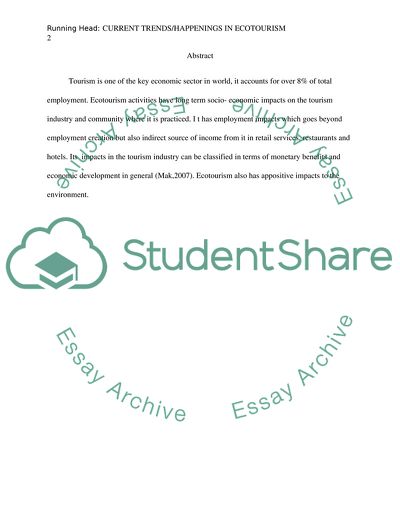Cite this document
(Current Trends in Ecotourism Literature review Example | Topics and Well Written Essays - 1750 words - 1, n.d.)
Current Trends in Ecotourism Literature review Example | Topics and Well Written Essays - 1750 words - 1. https://studentshare.org/tourism/1800835-current-trendshappenings-in-ecotourism
Current Trends in Ecotourism Literature review Example | Topics and Well Written Essays - 1750 words - 1. https://studentshare.org/tourism/1800835-current-trendshappenings-in-ecotourism
(Current Trends in Ecotourism Literature Review Example | Topics and Well Written Essays - 1750 Words - 1)
Current Trends in Ecotourism Literature Review Example | Topics and Well Written Essays - 1750 Words - 1. https://studentshare.org/tourism/1800835-current-trendshappenings-in-ecotourism.
Current Trends in Ecotourism Literature Review Example | Topics and Well Written Essays - 1750 Words - 1. https://studentshare.org/tourism/1800835-current-trendshappenings-in-ecotourism.
“Current Trends in Ecotourism Literature Review Example | Topics and Well Written Essays - 1750 Words - 1”. https://studentshare.org/tourism/1800835-current-trendshappenings-in-ecotourism.


